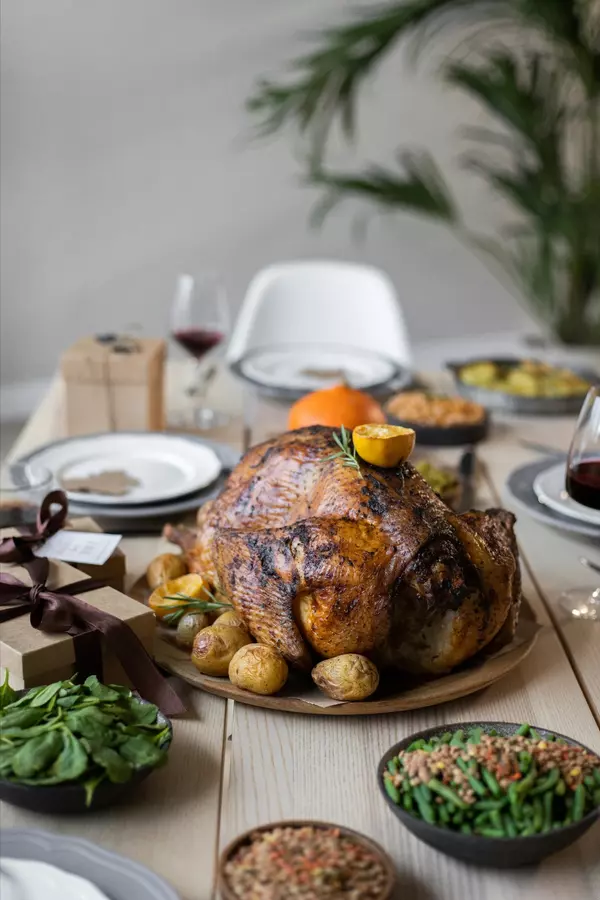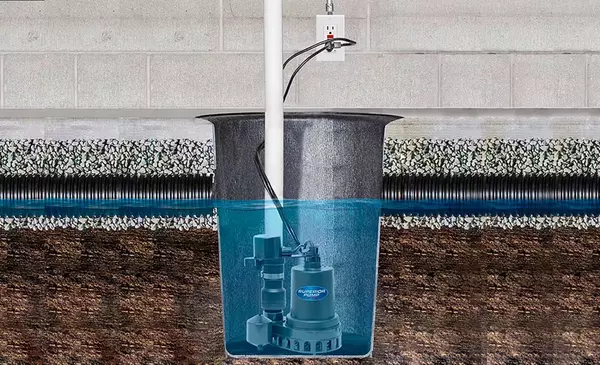
Embracing Tradition: Blue Bottle Trees in the Lowcountry
In the heart of the charming Lowcountry, where history whispers through moss-draped oaks and the scent of magnolias perfumes the air, a unique tradition stands tall against the backdrop of Southern hospitality – the blue bottle trees. With their azure hues shimmering in the sunlight, these fascinating fixtures not only add a touch of whimsy to the landscape but also hold deep-rooted cultural significance. Let's delve into the enchanting world of blue bottle trees and discover their allure in the Lowcountry. The History of Blue Bottle Trees: Blue bottle trees have a rich history steeped in African folklore and Southern superstition. Originating from West Africa, the tradition of adorning trees with colorful glass bottles was brought to the United States during the transatlantic slave trade. In African folklore, it was believed that blue hues had the power to trap evil spirits, preventing them from entering homes. This tradition evolved over time, merging with Southern folklore, where blue bottle trees became symbols of protection, good luck, and warding off malevolent forces. Symbolism and Tradition: In the Lowcountry, blue bottle trees continue to carry profound symbolism and serve as a tangible link to the region's cultural heritage. Traditionally, blue bottles were affixed to tree branches or placed on stakes near homes to protect against evil spirits and bring good fortune to the inhabitants. Each bottle, catching the sunlight and casting a mesmerizing glow, symbolizes a barrier against negativity, ensuring harmony and prosperity within the household. Aesthetic Beauty: Beyond their symbolic significance, blue bottle trees contribute to the visual splendor of the Lowcountry landscape. Against the backdrop of verdant marshes and quaint Southern architecture, these vibrant accents create a striking contrast, evoking a sense of whimsy and enchantment. Whether nestled in a lush garden or gracing the front yard of a historic plantation home, blue bottle trees captivate the imagination and beckon passersby to pause and admire their beauty. Preservation and Revival: While the tradition of blue bottle trees has endured for centuries, it has experienced a resurgence in recent years, thanks to efforts to preserve and celebrate Southern folklore. Artisans and enthusiasts alike are embracing this age-old tradition, crafting their own blue bottle trees and incorporating them into garden designs as a nod to the region's cultural heritage. Through community events, workshops, and educational initiatives, the legacy of blue bottle trees is being passed down to future generations, ensuring that this cherished tradition continues to thrive in the Lowcountry. In the tapestry of Southern charm and tradition that defines the Lowcountry, blue bottle trees stand as enduring symbols of resilience, folklore, and cultural heritage. With their azure brilliance and timeless allure, these captivating fixtures weave a narrative of protection, prosperity, and the enduring spirit of the South. As they adorn the landscape, blue bottle trees serve as both guardians of tradition and beacons of beauty, inviting us to immerse ourselves in the enchanting lore of the Lowcountry.

Preserving Legacy: Navigating Heirs' Property
Heirs property, a unique form of land ownership, often carries the weight of family legacies and histories. It is land that has been passed down without a will and is still titled in the name of someone who died more than ten years ago. When it comes to forestland, managing these valuable natural resources requires a delicate balance between preserving heritage and implementing sustainable practices. In this blog post, we explore the complexities of heirs property, discuss its impact on owners, and offer insights into effective forestland management to ensure a lasting legacy for generations to come. Understanding Heirs Property A Legacy Tied to the Land: Heirs property refers to real estate that has been passed down through generations without a clear will or estate plan. This often occurs when the land is still titled in the name of a deceased family member who passed away more than ten years ago. The extended period without a clear title adds a layer of complexity, impacting the stability and usability of the property. Challenges of Heirs Property Navigating Ownership Complexity: The extended period without a clear title exacerbates the challenges associated with heirs property. Multiple co-owners, each with a share in the land, may face difficulties in establishing a unified vision for the property. Owning land "in common" as heirs is unstable and puts your family land at high risk for loss. Also, you cannot obtain a mortgage or loan or qualify for assistance programs to renovate your home or improve your family land. How Does Owning Heirs' Property Affect You? Stability and Financial Constraints: Owning land "in common" as heirs poses significant challenges. The unstable ownership structure can lead to difficulties in making collective decisions, potentially resulting in the loss of the property. Moreover, the inability to obtain a mortgage, loan, or qualify for assistance programs hinders your ability to make essential improvements or renovations to the family land, limiting its overall potential. Importance of Clear Communication Family Meetings and Decision-Making: Given the impact of heirs property on stability and financial constraints, effective communication becomes even more critical. Holding regular family meetings provides a platform for open discussions and collective decision-making, fostering a shared vision for the land's future. Establishing clear decision-making processes helps prevent conflicts and ensures that all stakeholders have a voice in shaping the property's destiny. Sustainable Forestland Management Balancing Conservation and Utilization: Despite the challenges, managing forestland involves striking a balance between conservation and utilization. Sustainable forestry practices aim to maintain healthy ecosystems, promote biodiversity, and ensure the long-term productivity of the land. This includes activities such as timber harvesting, reforestation, and wildlife habitat preservation. Seeking Professional Guidance Forestry Experts and Legal Counsel: Given the complexities of heirs property and forestland management, seeking professional guidance is crucial. Forestry experts can provide insights into sustainable practices, timber valuation, and overall land health. Legal counsel specializing in heirs property can assist in clarifying ownership, establishing legal structures, and addressing potential issues. Establishing a Forest Management Plan Preserving Heritage, Ensuring Sustainability: Creating a comprehensive forest management plan is essential for heirs property, especially when there is an extended period without a clear title. This plan should outline conservation goals, sustainable forestry practices, and strategies for addressing ownership complexities. A well-designed plan considers both the financial and ecological aspects of forestland management. Heirs property, with its rich history and familial ties, holds immense value, especially when it comes to forestland. By navigating the challenges, embracing sustainable practices, and addressing the complexities of an extended period without a clear title, families can ensure that their legacy remains intact for future generations. Through clear communication, seeking professional guidance, and establishing thoughtful forest management plans, heirs property can become a source of pride, preservation, and sustainable land stewardship. In doing so, families honor the past while creating a sustainable future for their cherished forestland. Do you need help with Heirs' Property or managing your forestland? Contact the Center for Heirs' Property Preservation at 843-745-7055 8570 Rivers Ave., Suite 170 North Charleston, SC 29406 www.heirsproperty.org "The Center provides legal education and direct legal servicees to resolve your heirs' property issues and sustainable forestry education and technical assistance to help you realize more income from your family land."
Categories
- All Blogs (78)
- 1031 exchange (2)
- 2024 market (1)
- 55 and over community (1)
- activities (2)
- african american (2)
- ai (1)
- ai design (1)
- angel oak tree (2)
- antebellum (2)
- assisted living (1)
- authors (1)
- blue bottle tree (1)
- boating (2)
- books about the lowcountry (1)
- boone hall (2)
- bulls island (2)
- buyer (8)
- buying (21)
- buying a home (20)
- buying in mount pleasant (6)
- buying in the lowcountry (6)
- buying on the water (4)
- cad (1)
- canoeing (1)
- charleston (30)
- charleston county (15)
- charleston tax (2)
- chart a boat (1)
- childhood home (1)
- climate change (1)
- coastal design (1)
- coastal erosion (1)
- coastal kitchen (1)
- coffee (1)
- coffee shops in charleston (1)
- condos (1)
- culinary (1)
- cypress gardens (1)
- design (2)
- dewees island (1)
- dock (2)
- docklife (1)
- downtown charleston (1)
- drayton hall (2)
- elderly couple (1)
- estate (1)
- farmers markets (1)
- flowers (1)
- folklore (1)
- folly beach (3)
- folly river (1)
- food (1)
- forestland (1)
- Fourth of July in Charleston (1)
- garden (1)
- gardening (1)
- georgian (1)
- greater charleston (5)
- greek revival (1)
- green thumb (1)
- greenhouse (1)
- gullah (1)
- haint blue (1)
- heirs' property (1)
- high water (1)
- historic architecture (1)
- historical homes (2)
- history (1)
- hoa fees (1)
- home buying (8)
- home repair (3)
- home styles (1)
- homeowner (6)
- homeownership (6)
- homes for sale in charleston (1)
- homes for sale in james island (1)
- homes for sale in mount pleasant (1)
- homes for sale in west ashley (1)
- homestead (1)
- homestead exemption (1)
- hospitality (1)
- hostess (1)
- hosting (1)
- houses (1)
- hurricane (1)
- insulation (1)
- interior decor (3)
- interior design (2)
- interiordesign (1)
- intracoastal (3)
- investing (1)
- investment (2)
- investment property (1)
- isle of palms (3)
- italiante (1)
- james island county park (1)
- john's island (1)
- kayaking (1)
- kitchen design (2)
- kitchen layout (1)
- land in common (1)
- lighthouse (1)
- lighthouses (1)
- lowcountry (10)
- luxury (1)
- luxury real estate (1)
- magnolia plantation (2)
- marketing (2)
- marketingyourhome (1)
- marsh (1)
- mold (1)
- mold in homes (1)
- mold in the lowcountry (1)
- mold remediation (1)
- mount pleasant (5)
- moving (3)
- moving to charleston (5)
- movingoutofstate (1)
- movingtocharleston (2)
- nar (1)
- nar lawsuit (1)
- nautical (1)
- oak trees (1)
- paddleboarding (1)
- palm trees (1)
- palmetto (1)
- palmetto trees (1)
- plantation (1)
- plantations (2)
- property (1)
- property preservation (1)
- raised homes (1)
- real estate (7)
- realestate (2)
- realestatemarketing (1)
- realty (6)
- realty101 (1)
- regime fees (1)
- relocation (1)
- relocationcosts (1)
- remediation (1)
- rental (1)
- rental properties (1)
- restaurant week (1)
- restaurants (1)
- retirement (1)
- sailing (1)
- seller (3)
- selling (10)
- selling a home (3)
- selling in charleston (4)
- selling in mount pleasant (2)
- selling on the water (1)
- selling your home (5)
- sellingyourhome (1)
- senior citizen (1)
- senior citizens (1)
- senior living (1)
- shark tooth (1)
- shem creek (2)
- south (1)
- south carolina (4)
- south of broad (1)
- southern architecture (1)
- southern folklore (1)
- southern hospitality (1)
- southern lady (1)
- southern living (2)
- spanish moss (1)
- spray foam (1)
- spray foam insulation (1)
- sullivans island (2)
- sweetgrass (1)
- sweetgrass baskets (1)
- taxes (1)
- tidal (1)
- title (2)
- title insurance (1)
- tour (1)
- tour times (1)
- townhomes (1)
- useanagent (1)
- victorian (1)
- wando river (1)
- water views (1)
- waterways (2)
- whyagentsmatter (1)
- winter (1)
- winter maintenance (1)
- winter ready (1)
- winterize (1)
Recent Posts











